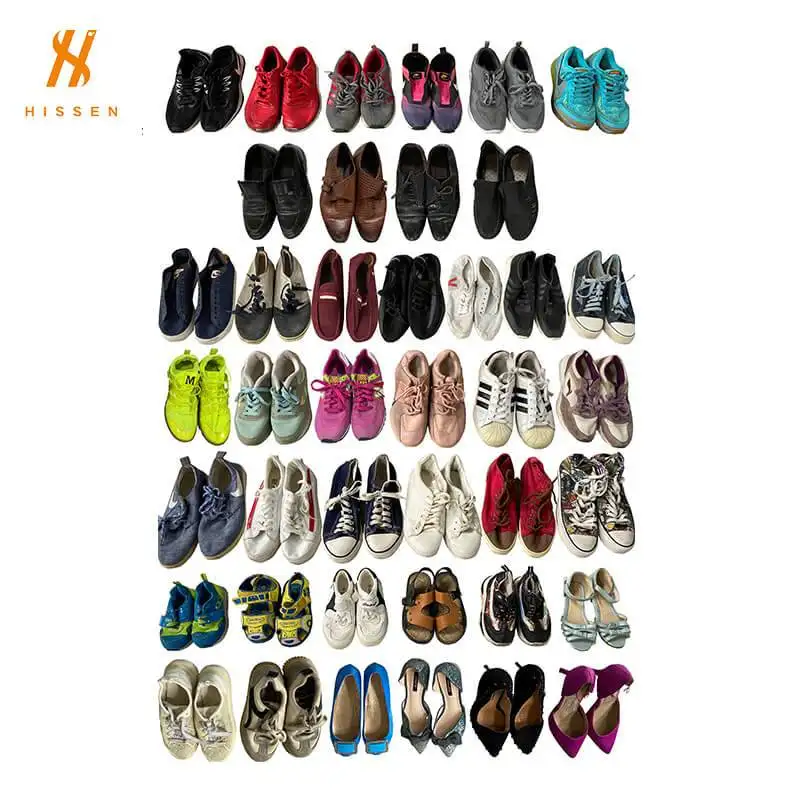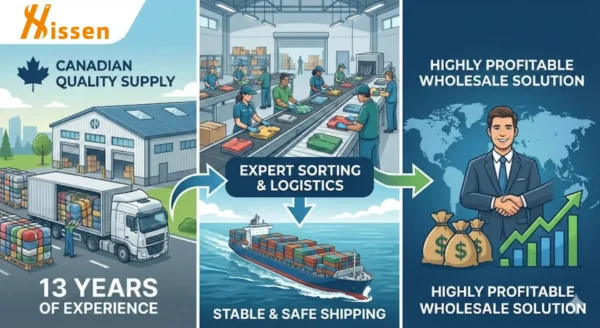I. Introduction: The Realities of Cross-Border Footwear Trade
The Second Hand Branded Shoes Wholesale market has seen substantial growth during the past ten years. Retailers, resellers, and distributors have realized the importance of bulk procurement of used branded shoes. The sector offers high margins with regular demand under a sustainable business model; hence, it is attractive to B2B buyers from around the globe. Behind all the seemingly easy attractiveness of affordable known labels lies perhaps one of the toughest challenges for wholesalers—international logistics.
To move second-hand branded footwear across borders is not just about filling a container and sending it over. From freight booking to customs clearance, there are variables at play that determine whether the process will be smooth or if there will be costly disruptions. Businesses that downplay these challenges end up with delayed shipments, and damaged goods, or have to pay compliance penalties that eat into their profits.
Be it Europe, be it Asia, be it North America, all these networks of logistics involve warehouses, ports, some bureaucratic checks, then a distribution center. With every single added complexity comes more to coordinate. To help new buyers understand these challenges, this guide will cover key points: How to Start Second Hand Branded Shoes Wholesale.
II. Common Logistics Challenges in B2B Footwear Wholesale
Rising Transportation Costs
Bulk shipping is a running cost that gets at the heart of Second Hand Branded Shoes Wholesale margins, for anywhere freight comes into play globally. Prices depend on oil, the season, and carriers among other factors. Slight changes in container prices will greatly affect the total cost when a company is dealing with thousands of pairs of shoes. Most Second Hand Branded Shoes Wholesale houses tend to go for the cheapest option as well which results in either having slow transit time or not getting reliable carriers however for a wholesaler it has to be about price and reliability.
Delays and Time Sensitivity
Wholesale footwear buyers frequently promise retailers fast restocking cycles. Unfortunately, delays caused by port congestion, labor strikes, or weather events are common in international trade. A late shipment of branded sneakers or leather shoes can mean missed sales opportunities and strained client relationships. Building in buffer timelines, tracking shipments in real time, and working with experienced freight forwarders help mitigate these risks.
Risk of Damage and Loss
Unlike brand-new stock, second hand shoes are already pre-owned, which makes quality preservation even more important. Poor packaging, rough container handling, or improper stacking can easily damage goods. Since orders often involve thousands of units, even minor losses quickly add up. Using reinforced packaging, protective wrapping, and trusted carriers reduces the chance of financial setbacks due to product damage.
III. Customs Clearance and Compliance Barriers

Duties and Tariffs
For Second Hand Branded Shoes Wholesale, customs clearance is often more complex than first-time retail goods. Countries apply varying tariff structures depending on classification, condition, and declared value. Importers must ensure accurate product categorization to avoid fines or shipment seizures. Mislabeling or under-declaring goods may appear to cut costs in the short term but leads to long-term risks. For example, shipments involving second hand designer shoes often face additional scrutiny due to classification complexities.
Import Restrictions and Local Regulations
Certain regions enforce strict regulations on importing second hand footwear due to health, sanitation, or domestic industry concerns. These may include fumigation or disinfection certificates, labeling requirements, or outright bans. Ignoring such rules can lead to containers being refused entry, returned, or destroyed at the port. Staying informed about regional restrictions before shipping is essential for minimizing risk.
Documentation Accuracy
Paperwork is one of the most overlooked yet crucial elements in logistics. Customs officials require commercial invoices, packing lists, certificates of origin, and—depending on the country—health or disinfection certificates. Missing or incomplete documentation is a primary cause of clearance delays. For wholesalers, investing in compliance teams or working with agents who specialize in second hand goods ensures smoother processing.
IV. Strategies to Control Risks and Reduce Costs
Prioritizing Compliance
Strong compliance practices are the foundation of sustainable wholesale operations. Second Hand Branded Shoes Wholesale businesses must stay updated on destination-country regulations, conduct regular audits, and build reliable documentation systems. Partnering with legal advisors or trade consultants may seem like an additional expense but helps avoid costly mistakes in the long run.
Use Insurance as Protection
Insuring bulk shipments is often overlooked, but it serves as a critical safeguard. Cargo insurance covers losses from theft, fire, accidents, or natural disasters during transit. For wholesalers dealing in high-value second hand branded shoes, this protection provides peace of mind and financial security. Selecting policies tailored to specific routes and product categories ensures the right coverage.
Optimize the Supply Chain
Combine smaller shipments into fewer containers to save on per-unit shipping costs. Create regional distribution centers that would help in speeding up the last mile and reduced storage fees. Long-term contracts with logistics providers who are reliable would also open up discounts and priority services to the firm, hence making it more competitive.

V. Conclusion
The Second Hand Branded Shoes Wholesale industry has quite a great window for success, profitability, and sustainability. However, logistics and customs are the major challenges that are supposed to be taken care of for a long-term stay in the business. From changing freight costs and delayed shipments to import restrictions and errors in documentation, all these can mar the margins as well as the reputation.
By implementing proactive strategies such as compliance planning, insurance coverage, and supply chain optimization, Second Hand Branded Shoes Wholesale businesses shall be able to mitigate risks around them and protect their profits. Firms that ensure logistics not only guarantee trade flow but also establish themselves as trusted partners in the broader resale ecosystem.

